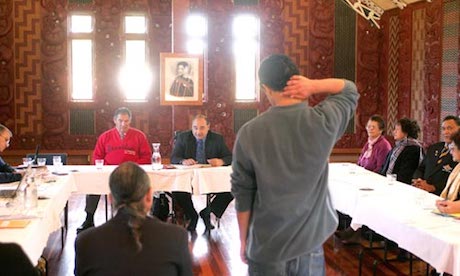“I often thought if a visitor from Mars came to New Zealand and looked at our care and protection system [for children], they would say there’s no sign of intelligent life on Earth – because it is a Pākeha system with Māori add-ons, sadly for a clientele – 63 per cent – who are Māori, says Judge Andrew Becroft.
He asked if New Zealand should rather have a Māori care and protection system with some clip-ons for Pākeha.
Becroft is New Zealand’s children’s commissioner and a former principal Youth Court judge.
He was addressing at this year’s Te Hunga Rōia Māori o Aotearoa (New Zealand Māori Law Society) annual conference last Friday.
However, he is optimistic about the present generation, telling the law students and young lawyers, “you have been accorded a second chance that we blew.” The new Oranga Tamariki Act, implemented in July, has an even stronger focus on whanau, hāpu and iwi.
Another speaker, Judge Soana Moala, who was appointed to the bench a year ago, said even at the Manukau District Court – where many cases involved Māori and Pasifika – “section 27” reports were rare.
Section 27 of the Sentencing Act allows offenders to request the court to hear submissions on the personal, family, whanau, community, and cultural background of the offender.
“A lot of these older white male judges only see young brown faces in court, so they only see ones that are facing really serious charges,” she said.
[They don’t get] to see what I see all the time, which is young, talented, clever, amazing young brown faces.”
Source
